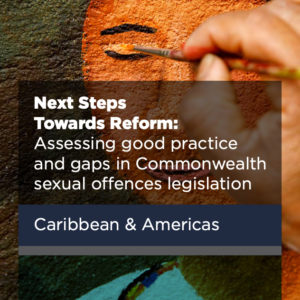In Belize, sexual offences laws are found in the Sexual Offences Act 1992 [Chapter 154 of the Criminal Code 2000] (SOA), and the Evidence Act 2000 (EA).
The law was amended in 2013 by the Criminal Code (Amendment) (No 2) Act introducing a range of positive reforms. For example, the new legislation adopted gender-neutral language, removed any exception for marital rape and expanded the definition of sexual assault to include penile penetration of all orifices. It provided for close-in-age defences to avoid criminalising young people and children who engage in consensual sexual activity with their peers. The age of consent in Belize is 16. It also amended the provisions criminalising all sexual activity with persons with intellectual disability, whether consensual or not, bringing the law closer into line with human rights standards that require protection of every person’s right to sexual autonomy.
However, some aspects of the legislation still do not meet good practice standards. These include not recognising the crime of sexual penetration by an object or any body part unless the complainant is under 16 (‘rape’ is limited to penile penetration), not legislating expressly to remove the requirement for corroboration or prohibiting the use of prior sexual history evidence.
In 2016, the Belizean Supreme Court held that criminalisation of same-sex sexual activity under section 53 of the Criminal Code 2000 was unconstitutional and struck it down as void (Caleb Orozco v The Attorney General of Belize). This made Belize the first former British colony in the Caribbean to decriminalise same-sex activity through the courts. However, at the time of writing, section 53 had not been removed from the Criminal Code and this express step should be taken to avoid any confusion.
Belize is a state party to relevant international and regional human rights treaties, including the Inter-American Convention on the Prevention, Punishment, and Eradication of Violence against Women (Convention of Belém do Pará), UN Convention on the Elimination of All Forms of Discrimination against Women, Convention on the Rights of the Child, Convention on the Rights of Persons with Disabilities, Convention against Torture and Other Cruel, Inhuman or Degrading Treatment or Punishment and International Covenant on Civil and Political Rights.
Read more about how Belize reformed its sexual offence laws.
Read more about Caleb Orozco v The Attorney General of Belize.
The full assessment of Belize is available here.



